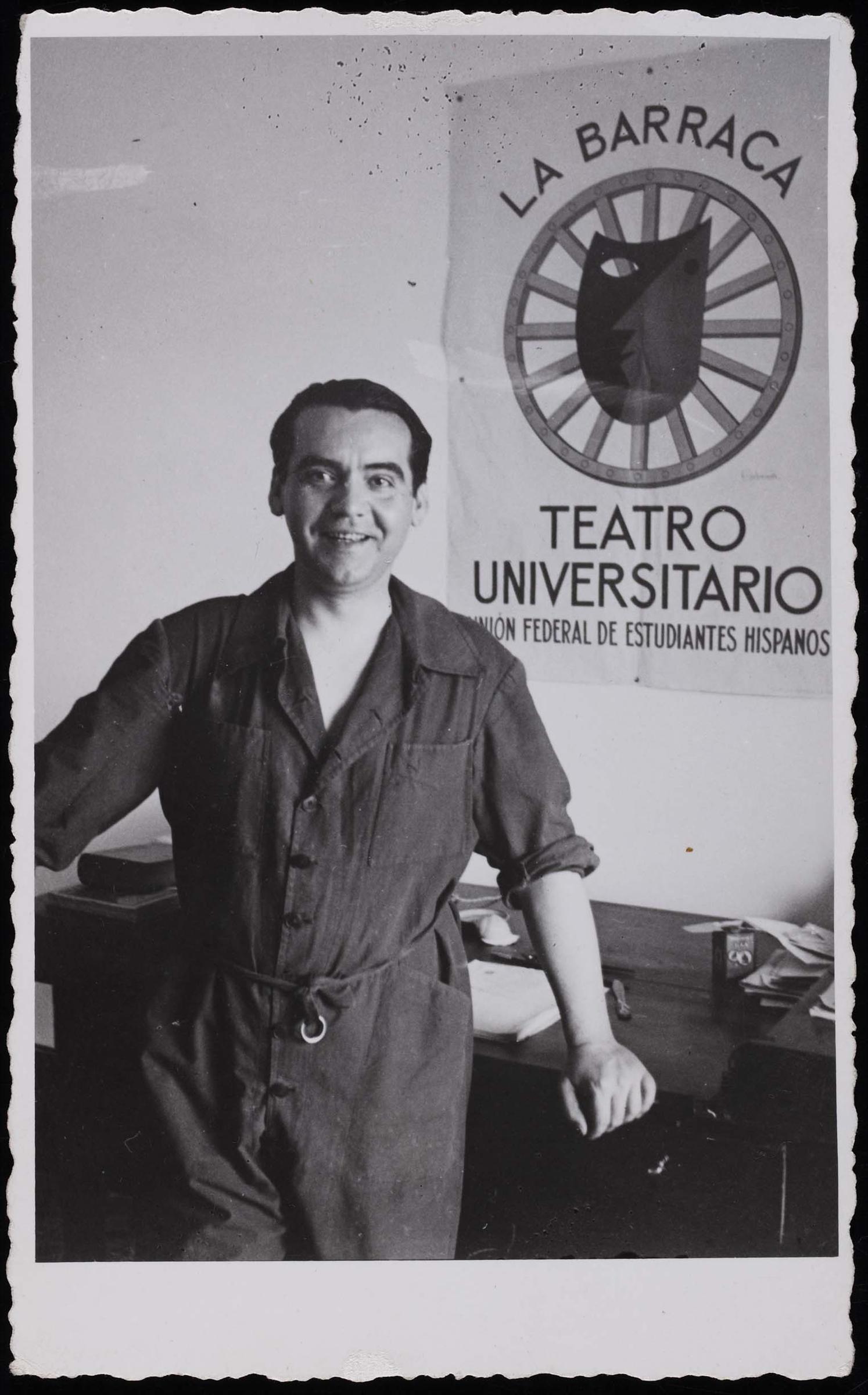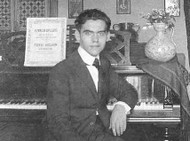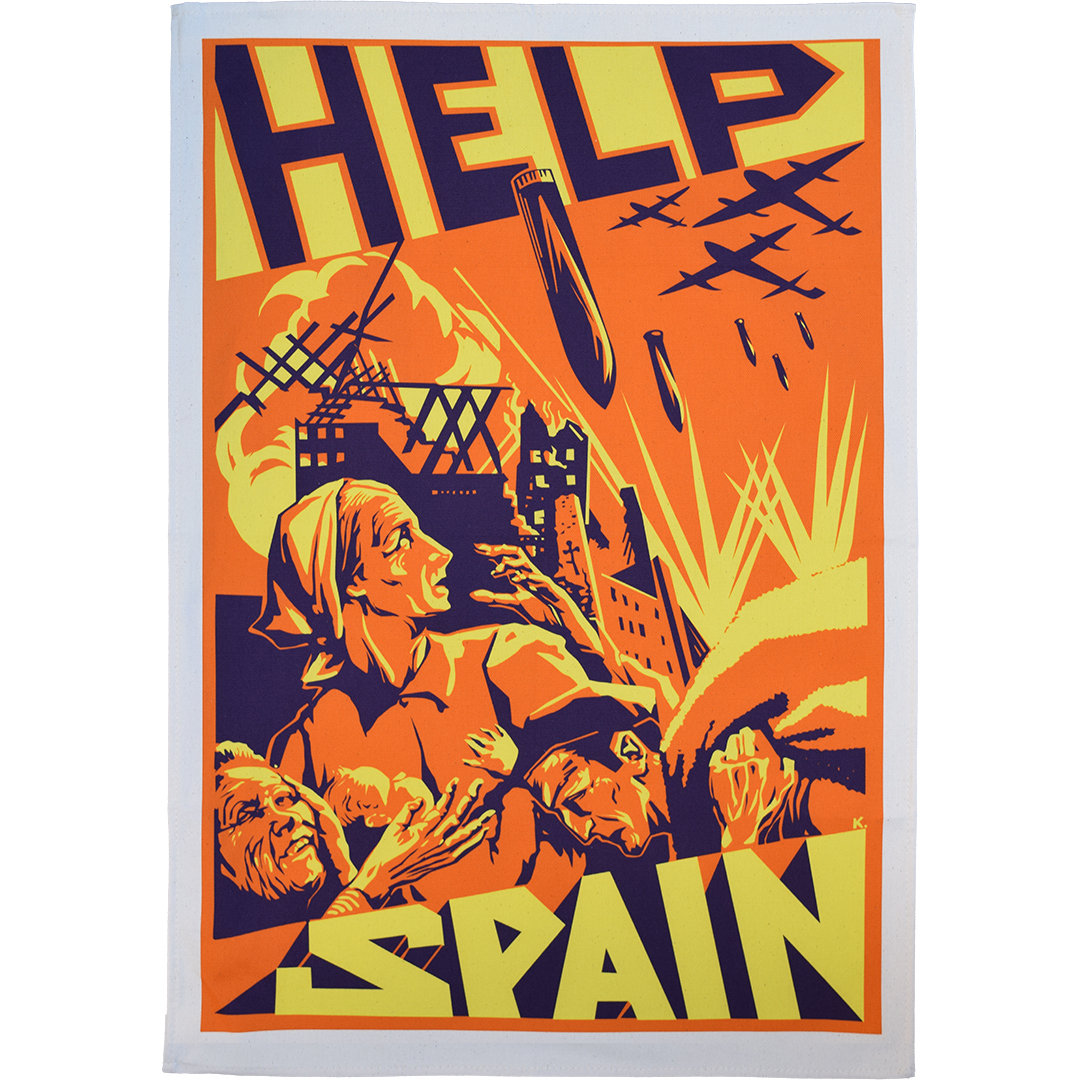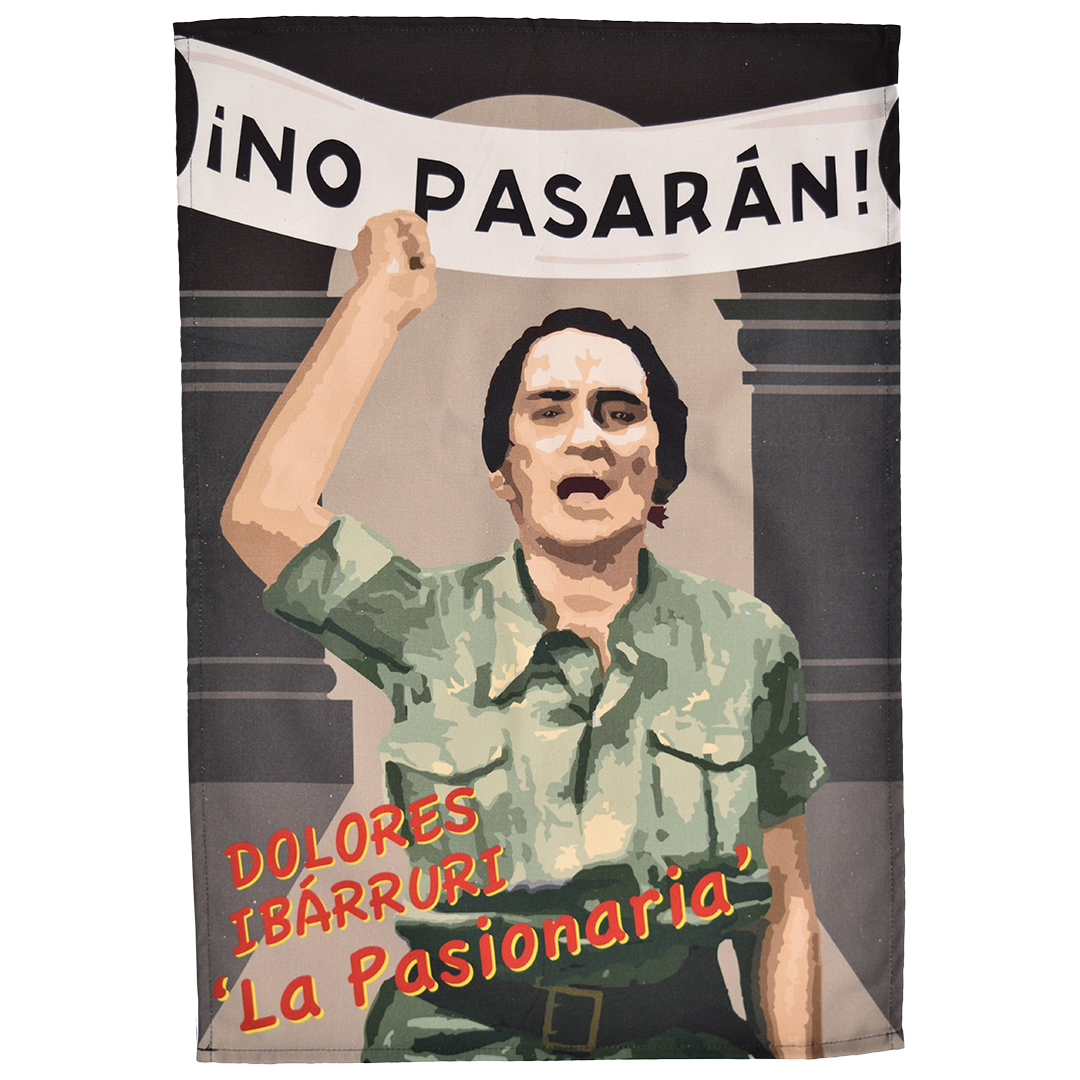I do not worry to die: The Life and Death of Federico García Lorca
Posted by Pete on 19th Aug 2021
Killed on this day in 1936, Lorca remains one of the most important radical writers in history
“As I have not worried to be born, I do not worry to die.”
These were the prophetic words of Federico García Lorca, the Spanish poet and playwright who was assassinated on this day in 1936 by far-right thugs near Granada.
Born in 1898, Lorca was the son of a wealthy landowner – a member of the class which was key to the rise of Franco and the overthrow of Spanish democracy in the 1930s.
Given his class background, Lorca was arguably an unexpected enemy of Spanish fascism. But Lorca was no typical aristocrat.
A poster produced for the 'Help Spain!' campaign, launched during the Spanish Civil War by anti-fascists in Britain.
Click to view our Help Spain tea towel
Fiercely intelligent, he was forever out of place in Spain, despite being born into its ruling elite.
As a gay man, the reactionary Catholicism of the Spanish establishment was an alienating force for him.
But Lorca found other cultures more to his liking, not least that of the working masses.
In his poetry and plays, he was always a champion of Spanish popular culture, especially in his native Andalusia.
His exploration of Andalusian culture culminated in his best known book of poetry, the Romancero Gitano, or Gypsy Ballads, which celebrated the beauty of rural Spanish life.

Lorca in 1932 in front of a poster for the Teatro Universitario La Barraca.
Lorca’s affinity for the people grew more politicised during his 1929 visit to New York, where he witnessed first-hand the Wall Street Crash and its devastation of the poor.
By the time of the Second Spanish Republic (1931-39), then, Lorca had well and truly broken away from his aristocratic roots, at least in a political sense.
After a decade of right-wing dictatorship under a Spanish general called Miguel Primo de Rivera, Spain was remade as a democratic republic in the spring of 1930, just in time for Lorca’s return from America.
The new Republic was dead set on democratic reforms not only in politics and the economy, but in culture, too.
And Lorca was the ideal candidate to head up a popular theatre campaign to travel beyond the big cities, giving ordinary Spanish people access to the dramatic arts.
In 1931, Lorca was appointed director of a student theatre company, the Teatro Universitario La Barraca. Funded by the new Ministry of Education, its brief was to bring classical Spanish theatre to the rural areas of Spain.
Lorca embraced his mission:
“Outside of Madrid, the theatre, which is in its very essence a part of the life of the people, is almost dead, and the people suffer accordingly, as they would if they had lost their two eyes, or ears, or a sense of taste. We are going to give it back to them.”
It was part of a broader ‘left turn’ in European culture towards theatre, art, music, and sport which was aimed at the popular masses, not the elite. Brecht, George Bernard Shaw, Oscar Wilde, and the People's Olympiad were all part of this movement.
But Lorca’s alliance with the popular struggle in Spain also made him a target of the Spanish Right, which never accepted the restoration of democracy in 1931.
'No Pasarán', meaning 'They Shall Not Pass', was a slogan used by anti-fascists in Spain during the civil war.
Click to view our No Pasarán tea towel
When Francisco Franco launched his coup in 1936 after a left-wing coalition was elected, Lorca was at home near Granada – the heart of what quickly became fascist territory in Spain.
As a gay man and a famous ally of the Republic, he was arrested and assassinated days after the outbreak of the Spanish Civil War.
But who assassinated Federico García Lorca?
The precise details of his death are uncertain, and Lorca’s remains are still unfound. But his killers were members of the Falange, the Spanish fascist party.
Although perhaps the most famous, Lorca was one of hundreds of thousands of left-wingers – communists, socialists, anarchists, trade union members – massacred by Franco’s troops and allies during the first months of the Civil War in a campaign of calculated, political barbarism.
But his memory continues to bless Spain. After decades of his work being prohibited under Franco, he is now widely commemorated in his homeland and across the globe.
His legacy lives on in his poems and plays, and in a sense he is still with us now. As Lorca himself said:
“In Spain, the dead are more alive than the dead of any other country in the world.”
Key years in Lorca's life:
- 5 June 1898: Federico García Lorca born in Fuente Vaqueros, Granada
- 1915: Lorca attends the University of Granada
- 1919: Lorca moves to Madrid to study at the Residencia de Estudiantes
- September 1923: General Miguel Primo de Rivera establishes a military dictatorship in Spain
- 1928: Lorca publishes Gypsy Ballads, his most famous collection of poetry
- 1929-30: Lorca visits the United States
- 1931: the Spanish Second Republic is established, overthrowing Primo de Rivera’s dictatorship, and Lorca is appointed Director of La Barraca theatre group
- 17 July 1936: Spanish Civil War begins
- 19 August 1936: Lorca is assassinated by fascists near Alfacar, in Granada province



